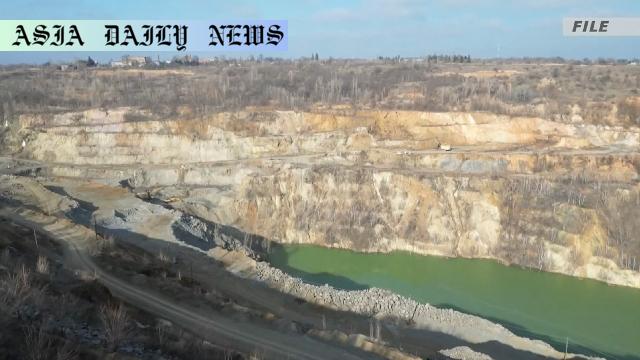Minerals: US President Trump revealed a potential mineral resource agreement with Ukraine to compensate for prior defense aid.
US is nearing a minerals agreement with Ukraine to offset defense aid costs.
Trump claims this deal would ensure economic returns for the US.
Proposal suggests allocating Ukrainian natural resource revenue to reconstruction.
Tension persists between Trump and Zelenskyy over the delayed deal.

Introduction to the Deal
In a recent statement at a conservative gathering near Washington, US President Donald Trump revealed that his administration is on the verge of finalizing a minerals deal with Ukraine. The agreement, if inked, would grant the United States access to key Ukrainian natural resources, including rare earths and oil, as compensation for American defense aid provided to Ukraine.
The Justification Behind the Agreement
President Trump expressed dissatisfaction with the current state of US-Ukraine relations, stating that it is only fair for the US to recover the financial burden of its defense support. This move is said to align with the administration’s continued focus on economic returns for American investments abroad. The President’s words, “We’re asking for rare earth, oil, anything we can get,” reflect a pragmatic, albeit controversial, approach to securing strategic resources.
The US Treasury’s Involvement
Contributing to the policy discussion, Treasury Secretary Scott Bessent proposed a nuanced strategy. In an opinion piece published by the Financial Times, he suggested channeling revenues from Ukrainian resource exploitation into a fund exclusively allocated for Ukraine’s long-term reconstruction and development. Bessent argued that such an arrangement could simultaneously ensure governance and transparency while bolstering Ukraine’s recovery post-conflict.
Rift with Ukrainian Leadership
The apparent delay in signing the minerals deal has further exacerbated tensions between President Trump and his Ukrainian counterpart, Volodymyr Zelenskyy. Trump recently criticized Zelenskyy, labeling him a “dictator without elections,” highlighting frustration over Ukraine’s hesitancy toward the agreement. Political analysts suggest that sealing this deal could diffuse some of these tensions, though it remains a contentious subject on both sides.
Implications for US-Ukraine Relations
This potential deal represents more than just an economic transaction. It underscores the evolving dynamic of US foreign policy under President Trump, where financial gains and equitable resource allocation play pivotal roles in bilateral partnerships. However, critics fear this may set a precedent where smaller nations risk over-dependence on economic powers for defense or reconstruction aid.
Conclusion
As the world watches, the proposed US-Ukraine minerals deal remains embroiled in political, ethical, and economic debates. While the agreement promises substantial benefits for the US, it also accentuates the complexities and challenges of diplomatic negotiations between nations with differing priorities. The outcome of this negotiation could shape the future of US-Ukraine relations and potentially influence global norms surrounding resource diplomacy.



Commentary
Reflecting on the Proposed Minerals Deal
The potential agreement between the United States and Ukraine over mineral resources sparks a fascinating discourse on international diplomacy and economic strategy. While this deal appears to be a logical step in recovering US defense aid funds, the implications it carries for Ukrainian sovereignty and global geopolitics cannot be ignored.
Balancing Aid with Economic Reciprocity
President Trump’s pragmatic approach toward defense aid, linking it with economic reciprocity, might appeal to fiscal conservatives and taxpayers. The notion of compensating American expenses in foreign conflicts or aid might appear justified to some. However, it also raises questions about whether such agreements weaken the integrity of altruistic defense support or tilt it into transactional diplomacy.
Ethics and Sovereignty at Stake
From Ukraine’s perspective, any deal involving natural resources must be carefully evaluated for long-term sovereignty implications. The suggested governance rights for the United States over Ukrainian resources spark ethical concerns. How much involvement is too much? Could such a partnership undermine Ukraine’s autonomy in resource management?
Potential Ripple Effects on Global Politics
Furthermore, global reactions to this deal are worth considering. Smaller nations may fear that such precedents legitimize power imbalances in international agreements. If resource-based compensation becomes normalized, it could spark hesitancy among nations reliant on aid from more economically powerful states.
Conclusion
In sum, this minerals deal represents a complex intersection of economy, ethics, and diplomacy. Whether it will truly benefit both the US and Ukraine remains to be seen, but it undoubtedly serves as a critical case study for future international agreements.